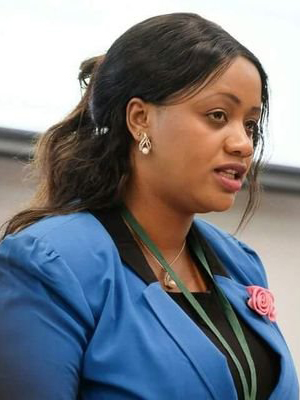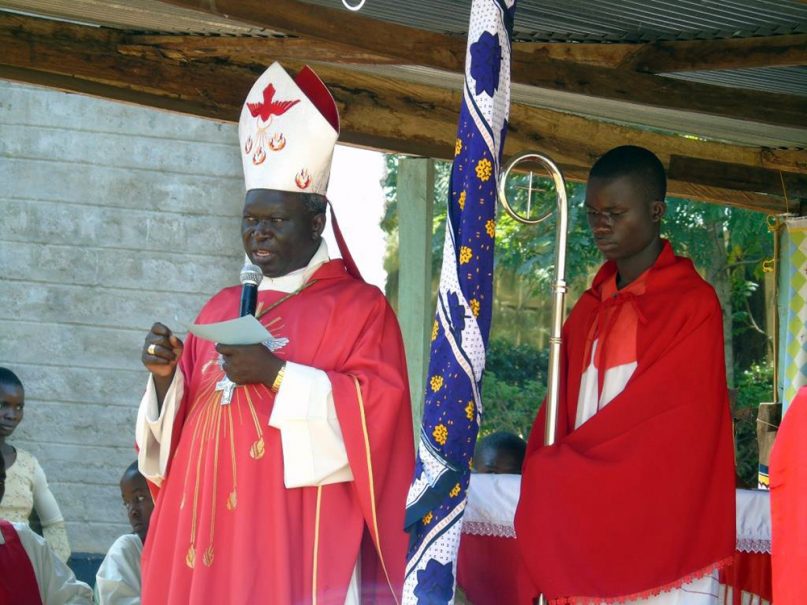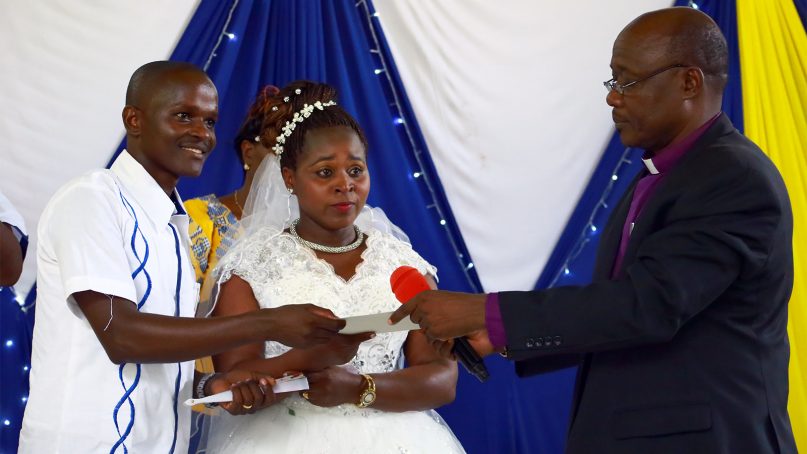NAIROBI, Kenya (RNS) — Sipping black coffee outside his house in Kibera, a slum district here, James Oketch comes up with as many reasons to support polygamy as he has wives.
“I’m proud of my big family because it’s a blessing from God. We should not take that as sin,” said Oketch, a 49-year-old carpenter, who is thrice married, with 13 children.
“There’s nowhere the Bible condemns polygamy,” offered Oketch, who attends Catholic Mass every Sunday at the Christ the King Church, despite his priest’s disapproval of the practice.
But the clincher for Oketch is that he believes polygamy is good for women. “I was very happy with the president’s action,” said Oketch, referring to President Uhuru Kenyatta, who signed a law legalizing polygamy in 2014.
“He understands our society and culture. He loves women and he doesn’t want them to remain single and snatch other women’s husbands. In fact, we should support polygamy for the sake of our women.”
Oketch is among hundreds of thousands of Christian men in this East African nation who have multiple wives despite Catholic and other church teachings. About 1.5 million Kenyans, or 10 percent of the married population, are in a polygamous marriage, according to the latest data from the Kenya Population and Housing Census.
More than 85 percent of Kenyans are Christian, while a third of the country is Catholic. Around 10 percent are Muslim.

Kenyan legislator Catherine Waruguru is in a polygamous marriage. Photo courtesy of Twitter
The debate on whether men should be allowed to marry multiple wives first garnered headlines after Kenyatta signed the marriage bill four years ago. During a heated debate in the National Assembly, female lawmakers stormed out of the house in protest, saying it was an era of equal rights, gender equity and fairness. The male-dominated house enacted the bill soon after.
Some Kenyan women, however, support polygamous marriage. (The legislation does not allow women to have multiple husbands.) “I’m in a polygamous setup and I am not embarrassed about it,” said Catherine Waruguru, a member of Parliament representing Laikipia, in a recent press conference.
Some legislators even see polygamy as pro-woman insofar as it protects unmarried mothers. Early last year, Gathoni Wamuchomba, a female lawmaker from central Kenya, reintroduced a controversial proposal asking rich men to consider polygamy because most of the married men were, she said, “siring children with different women.”
“We give birth to these children, and we do not want to own up to them,” she said. “If you are a man and you can sustain five wives, have them. If you are a man and you are in a position to bring up many children, do it. Polygamous marriage is not a crime but a way of culture.”
Young and old men have heeded the call and openly married multiple wives. Last month Tom Mako, a prosperous car dealer, shocked Kenyans when he married two women, Elizabeth Simaloi and Joyce Tikoiyanon, simultaneously in a colorful traditional ceremony in southern Kenya. He was praised in the media for his courage.
“I decided to marry my two wives because I love them,” said Mako. “I didn’t want to cheat on them so I convinced them to have a joint wedding.”
The Catholic Church has condemned the practice and questioned whether the new law is constitutional.
“It’s against Christian doctrine to have more than one wife,” said Bishop Philip Anyolo, chairman of the Kenya Conference of Catholic Bishops. “It’s time that we uphold the dignity of the woman. I appeal to all Catholics and Kenyans to reject the polygamy call by our leaders who are trying to find solutions by suggesting alternative forms of family.”

Bishop Philip Anyolo, chairman of the Kenya Conference of Catholic Bishops, leads Mass at St. Joseph Mission Catholic Church on Oct. 17, 2018, in Nairobi, Kenya. The Catholic Church opposes polygamy. RNS photo by Tonny Onyulo
Other denominations have also opposed polygamy, saying it contributes to poverty as men divide their few resources among larger families.
“We cannot advocate for polygamy because it’s un-Christian,” said Bishop Paul Korir of the Anglican Church of Kenya. “It also overburdens families. Our leaders should understand the economic problems the families are going through at the time and stop spreading evil.”
Gethrude Nekesa, a teacher, said she supported polygamy but appealed to men who are planning to get second wives to first seek consent from their first wives, as women are often unaware they are sharing a husband.
“I support it,” said Nekesa, 35. “But for the sake of peace, a man should first seek consent from his wife before he takes the second one.”
Oketch, husband of three wives, disagreed. He said he didn’t consult any of his wives before marrying another one.
“There’s nowhere in the Bible where King Solomon and King David consulted anybody to marry a second wife,” he said. “I think we should be good Christians who follow and understand the Bible.”





